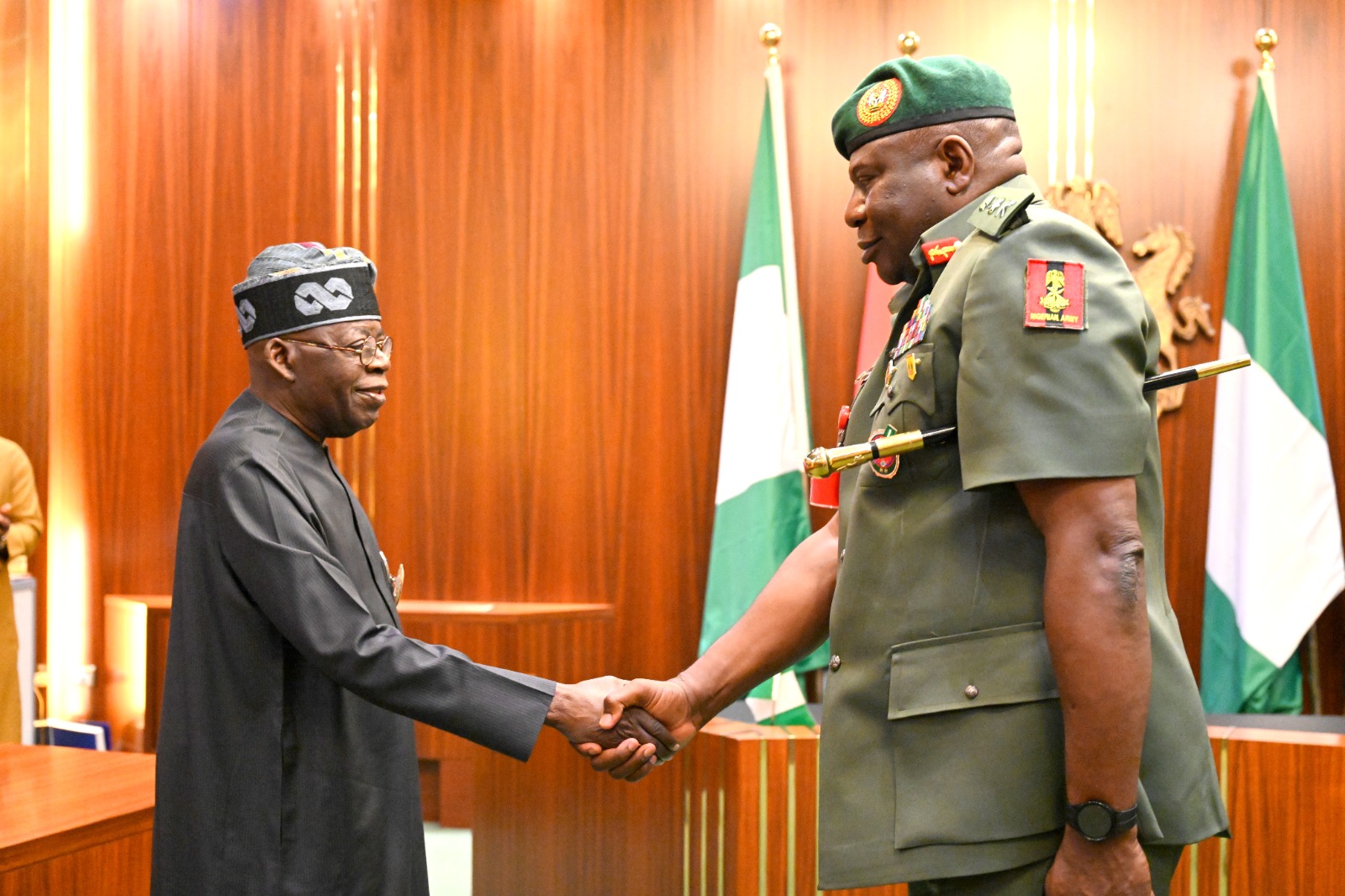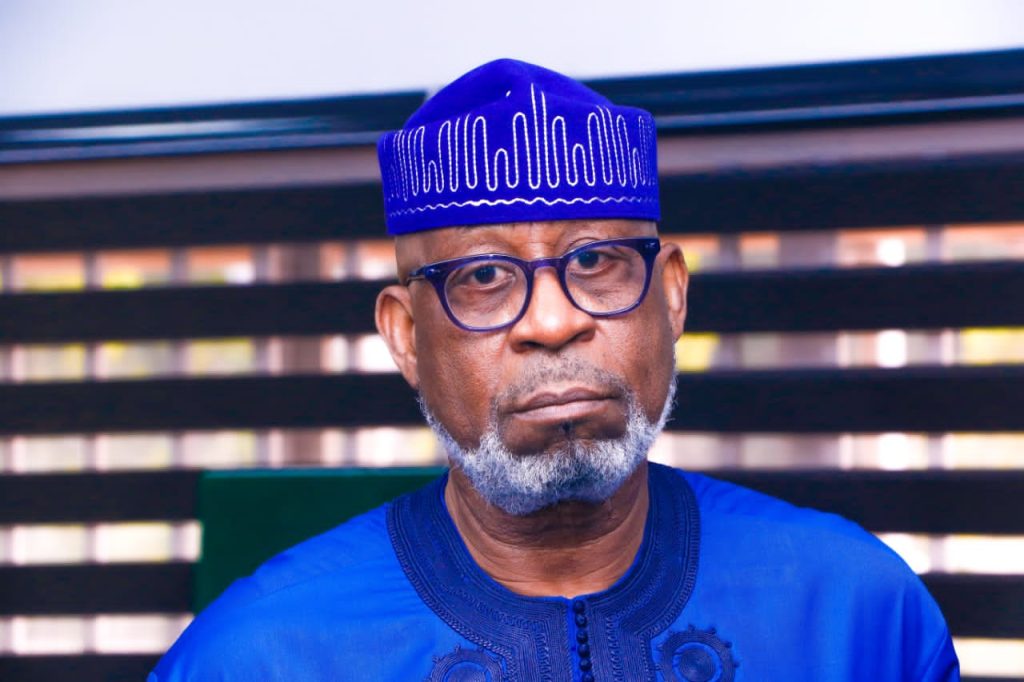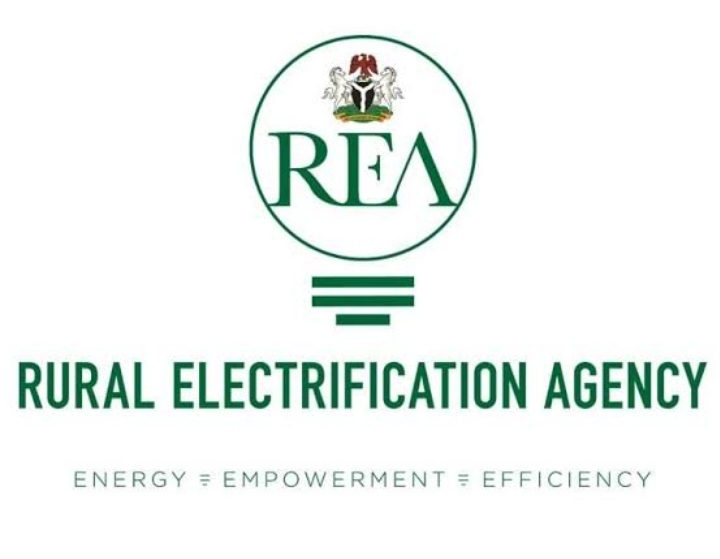Jumai Adedoja Fabuyi is a versatile professional with expertise as an entertainment lawyer, DJ, and music industry specialist. She also serves as the Chief Operating Officer at Scar Production. In her role as an entertainment lawyer, Jumai has been instrumental in shaping the Nigerian music industry by negotiating fair contracts, clearing tracks, and facilitating international collaborations to expand artistes’ reach. Her efforts ensure that Afrobeat talents are recognised and protected globally. Recently, she was honoured with the ‘Global Hero Award’ for her significant contributions to technology and simplifying digital processes. In an interview with NGOZI UMA, she shares her inspiring journey through the intersecting worlds of entertainment, law, and technology.
What’s a standout deal you’ve brokered for a Nigerian musician?
Absolutely! A notable one was seeing a track I facilitated get nominated for the Grammys. One of the most exciting parts of my work is seeing Nigerian artists make waves both at home and abroad, and I’ve had the pleasure of brokering some major deals that bring their unique sound to wider audiences.
Without getting into specifics (client confidentiality is key, of course), I’ve facilitated deals that have connected my clients with well-known music labels and have even been Grammy-nominated, from local powerhouses in Lagos to African giants.
Whether it’s setting up contracts that let their music reach new ears across continents or ensuring fair terms so they’re properly credited and compensated, each deal is like setting up a launch pad for their art to soar.
There’s something incredibly rewarding about watching a track you helped clear blow up on the charts; it’s like playing a tiny, behind-the-scenes part in a global jam session.
What’s your proudest moment in your entertainment law and music career?
My most significant accomplishment as both an entertainment lawyer and music executive has been working with some of the biggest names in the Afrobeats scene, including one of the genre’s most prominent exports from Nigeria, who is currently on my roster as a client.
Helping them navigate the complex world of music contracts, international collaborations, and brand partnerships has been both a thrilling and rewarding experience.
It’s not just about the legal work; it’s about being a trusted advisor to artists at the peak of their careers and ensuring they make smart decisions that set them up for long-term success.
In addition to this, I’ve had the privilege of working with several music legends in Nigeria—artists who’ve shaped the Afrobeats sound and influenced global music trends.
Whether it’s negotiating international record deals, securing licensing agreements, or handling intellectual property rights, every deal is a unique challenge that requires a deep understanding of both the law and the music industry. These experiences have allowed me to advocate for artists while preserving their creative freedom and ensuring they’re financially rewarded for their talent.
It’s incredibly gratifying to see how my work supports these artists’ growth and helps them make their mark on the global stage.
What inspired The Scar Production, and what services does it provide?
The Scar Production is the CEO’s brainchild. He has always been a hands-on person and a producer and wanted to bring his twist and spice into the production industry.
At The Scar Production, we’re like an entertainment boutique. We offer production services, manage bookings, and promote artists to help them thrive.
Our online radio station serves as a platform for emerging voices in Afrobeats, hip-hop, and other genres, reaching audiences in Nigeria, the UK, and the U.S. We’re here to support the artists who define our culture and to create a space where their talent can shine both locally and globally.
What’s the story behind The Scar Radio’s rapid expansion?
Oh! This is interesting. The Scar Radio’s journey from a small WhatsApp group to a global platform is honestly one of my favourite stories to tell! It all started during the pandemic when people were craving connection and good vibes while stuck at home.
I’m a member of a WhatsApp group I have been on since my undergraduate days at the University of Lagos. Tobyshang and I started to share music on the group one evening with him adding his hype spice to the songs and sending in as voice notes, which quickly took on a life of its own. People loved discovering new tunes and debating which tracks were the best, so we took it up a notch and moved to Telegram to handle a growing crowd.
The excitement just kept building! We saw this huge opportunity to bring fresh African sounds to an even bigger audience, so we launched an online radio platform, and it’s been surreal ever since.
Today, The Scar Radio has a weekly audience of around 50,000 listeners tuning in from Nigeria, the UK, the U.S, and beyond.
We’re constantly adding new shows, curating playlists, and featuring both up-and-coming and established artists to keep that original energy alive. It’s a testament to the power of community, great music, and a little bit of pandemic creativity.
It wasn’t just about sharpening my skills—it was about staying ahead of the curve in an industry that’s always evolving and being able to offer the best counsel to my clients as they navigate the digital world.”
How has your education equipped you to navigate the entertainment-tech intersection?
My education has been a powerful foundation for navigating the exciting intersection of entertainment and technology. Through my LL.B and subsequent LL.M. in Intellectual Property and Technology Law, I’ve gained a solid understanding of how legal principles apply to both traditional entertainment and emerging tech.
But it wasn’t just the coursework—it was also the real-world exposure. Working with artists and tech professionals, I saw firsthand how copyright, contracts, and privacy laws are constantly tested by digital platforms and tech-driven shifts in the entertainment landscape.
The LL.M. deepened my knowledge of intellectual property, giving me a toolkit to protect the creative rights of artists, especially in a world where technology constantly challenges those boundaries.
Additionally, learning about data privacy and tech regulation has been crucial as the music industry, and entertainment at large becomes more digitised and data-driven.
My education has allowed me to blend legal expertise with a forward-thinking approach, so I can address challenges that didn’t exist just a few years ago—like data protection in music streaming or intellectual property rights in AI-generated content.
My time at the University of Lagos was incredibly influential in shaping my career, particularly in entertainment law. Lagos is the entertainment hub of Africa, and being immersed in that environment gave me first hand exposure to the vibrant, dynamic world of music, film, and culture.
What leadership skills did you develop as Head of Justice Kayode Eso Student Chambers and President of NAOSS?
Being the Head of Justice Kayode Eso Student Chambers taught me some key leadership lessons that have stayed with me in my career. First, it taught me the importance of collaboration and listening.
Leading a student chamber meant working with a diverse group of individuals with varying opinions, and finding ways to unite them toward a common goal was crucial.
I had to delegate tasks, mediate disagreements, and make tough decisions—all while ensuring everyone felt valued and heard. Those skills have been invaluable in my current role as a leader in both law and entertainment.
As President of NAOSS, I learned that true leadership is about service. It wasn’t just about holding a title; it was about advocating for the needs of my peers. Under my leadership, we introduced bursaries for students, which was a huge step in addressing financial challenges.
That experience shaped my approach to advocacy by teaching me how to identify the needs of the community, create tangible solutions, and follow through with action.
It also instilled in me the importance of being transparent, relatable, and accountable—values I carry into my work, whether I’m advocating for artists or working on legal cases.
Both experiences gave me a deep sense of responsibility, taught me how to lead with empathy, and solidified my commitment to making a positive impact wherever I go.
What sparked your interest in data privacy, and how do you champion stronger regulations?
My interest in data privacy began as I saw how rapidly technology was evolving, particularly in the entertainment and tech industries, and how little control individuals often had over their data.
As a legal professional working with artists and in the digital space, I became increasingly aware of how sensitive data was being handled—sometimes poorly—and how important it was for people to have control over their information.
This sparked a drive to explore the legal mechanisms that could protect consumers and creators alike.
Advocating for stronger data privacy regulations is something I’m deeply passionate about. In my work, I emphasise the importance of transparency, accountability, and security when it comes to data collection and usage.
Whether I’m working with musicians on how their data is handled by streaming platforms or pushing for better privacy safeguards in technology, I’m constantly advocating for policies that ensure fair treatment and the safeguarding of personal information.
I also engage with legislative efforts, staying updated on global privacy laws like the GDPR, to ensure that I can help shape the conversations around stronger regulations that protect individuals in our increasingly digital world.
What impact do data privacy regulations have on the entertainment industry?
Data privacy regulations have a significant impact on the entertainment industry, especially as it becomes increasingly digital. The most obvious implication is that companies, platforms, and artists must ensure they are protecting consumer and user data.
In a world where streaming services, social media, and online purchases generate massive amounts of personal information, entertainment businesses must comply with regulations like the GDPR, CCPA, and other local data privacy laws to avoid hefty fines and reputational damage.
For artists, these regulations also mean they need to be more careful about how their fans’ data is collected and used—whether it’s through fan clubs, mailing lists, or ticket sales. Consent, transparency, and data security become crucial, especially with the rise of AI and machine learning, which can use personal data to target ads or personalize content.
Artists must be proactive about ensuring their digital platforms are compliant and that they’re not unknowingly exploiting their audience’s privacy.
Moreover, as AI tools are increasingly used to analyze data for content creation or marketing, entertainment companies must consider the ethical and legal implications of how they gather and process data.
Privacy laws now require that individuals’ data be collected transparently, used responsibly, and stored securely, which means businesses in the entertainment sector need to adopt a privacy-by-design approach when developing new technologies or marketing strategies.
In short, the entertainment industry must view data privacy not just as a legal obligation, but as an opportunity to build trust with their audience and maintain long-term success in an evolving digital landscape.
What tips do you have for aspiring entertainment lawyers/music executives?
My advice to aspiring entertainment lawyers and music executives is simple: stay passionate, stay informed, and be adaptable. The entertainment industry is constantly evolving, and the intersection of law, technology, and music is rapidly changing, so it’s crucial to keep learning.
Dive deep into both the legal and business sides of the industry. As an entertainment lawyer, you’ll need a solid understanding of contracts, intellectual property, and the unique challenges that artists face in the digital age.
For music executives, you’ll need to understand not just the creative side of things but also how to navigate partnerships, marketing, and the business side of the industry.
Also, be prepared to build strong relationships. In this industry, reputation is everything, and networking with artists, labels, producers, and other lawyers can open doors and lead to opportunities
And don’t forget about the importance of staying flexible—whether it’s adapting to new technology, negotiating a deal, or helping an artist find their creative voice, being able to pivot and think on your feet will set you apart
Finally, never lose sight of why you started. The industry can be tough, but it’s also incredibly rewarding when you see the impact of your work—whether it’s helping an artist protect their creative rights or supporting the growth of a new music talent.
Stay dedicated, work hard, and always be ready to embrace the new challenges that come your way.
How do you juggle law, music, and personal responsibilities?
Balancing my legal practice, music industry work, and personal life is a juggling act, but I thrive on the energy it gives me. In my legal practice, it’s about being organised and prioritising tasks so I can stay ahead of my clients’ needs, whether it’s negotiating contracts or advising artists.
For the music industry side of things, I make sure I carve out time for artist development, working with labels, and ensuring everything from production to promotions runs smoothly.
But there’s one more fun layer to the balance—I’m also a DJ! Sometimes I get the chance to spin tracks at events or for friends, which lets me tap into my creative side and stay connected to the music scene differently.
It’s a great way to unwind and also keep my finger on the pulse of the music I’m working with, which helps me stay fresh in both the entertainment and legal aspects of my career.
Of course, maintaining a personal life is important too. I make sure to take breaks, spend time with loved ones, and do things that recharge me so I can bring my best self to my work and passions.
It’s all about managing time well, staying disciplined, and remembering why I’m doing all of it—because I truly love what I do.

 4 hours ago
10
4 hours ago
10














